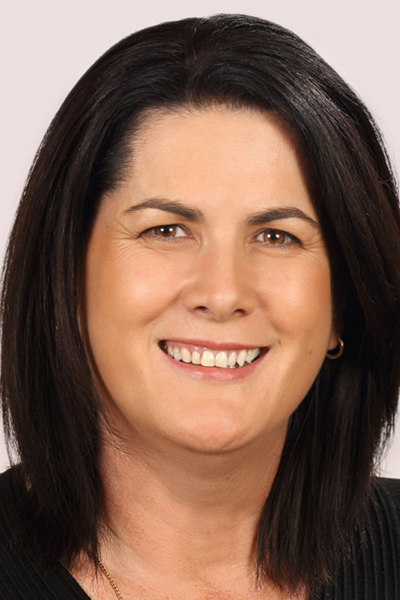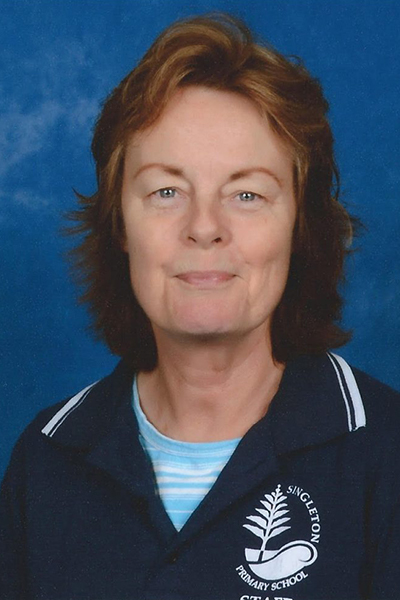ACCE/ACS Leader of the Year
The ACCE and Australian Computer Society (ACS) Award for Outstanding Leadership in the use of ICT in Education is a national award that acknowledges the work of educational leaders and innovators. The award recognises significant advocacy, support and promotion of the use of ICT in education. Typically a candidate will be a leader / mentor / advisor to a school or broader educational community group, and generally their major role is not as a classroom teacher, Candidates will have had a distinguished career and proven inspirational achievement in leading the ICT in education community.
This may include their work in
→ Achieving excellence in ICT in education innovation and development and work tirelessly to improve the quality of education
→ Assisting in the building of partnerships to advance the use of ICT in education (eg. school and community partnerships, school and industry partnerships)
→ Planning, developing and implementing programs to advance ICT in Education
→ Providing advocacy for ICT in Education to the extent that their work is used as a model for others
→ Serving as a catalyst for policy change and development in ICT in Education
→ Contributing to CEG and/or ACCE work and actively participate in the professional communities of these organizations
→ Nurturing and mentoring individuals, groups and/or associations to enhance the use of ICT in Education
→ Conducting research and/or write about ICT in Education
→ Inspiring others to strive for excellence
Each state member association has the opportunity to nominate a member for the award. The nominee will usually be the recipient of a state award.
The award is announced and presented at a national conference where practical.
Recognition
→ receives up to $2,000
→ receives an ACS membership for a year
→ receives a plaque
→ is recognized on the ACCE web site
→ is invited to present at the next ACCE conference
→ may be nominated as the ACCE candidate for the relevant ISTE award
Selection process
Eligibility
Submission process
Application should include:
• Application Form
• Nomination Statement (including reference to the criteria)
• Curriculum Vitae
• Letters of Recommendation (minimum of two)
Criteria for selection
• Significant positive impact on technology use in education; locally, regionally, state wide, nationally, worldwide.
• Efforts to involve the community in the initiative or program to facilitate partnerships with business and/or legislative initiations to advance the use of technology in education.
• Works tirelessly to genuinely improve the quality of education.
• Integrates deliberate planning in an effort to improve education through the use of technology.
• Education and/or work experience has been significantly advanced in the nominee’s workplace as a result of the nominee’s efforts.
• Active member of professional organizations.
• Contributed to the profession by presenting at professional conferences, seminars and/or workshops or publishing articles in print or through electronic media.
• Work can be used as a model.
• Work reflects the mission and purpose of ACCE.
• Will represent ACCE well in all forums.

Karen Swift from QSITE
2019 Leader of the Year
Karen is the Head of Department for Information Technology at James Nash State High School in Gympie. She was nominated for this award by QSITE (Qld Society for information Technology in Education).
Karen is an outstanding educator and leader of eLearning, digital pedagogies and ICT agendas at all levels, from the classroom with her own students, through to ICT leadership within the school and beyond to state, national and international roles related to Information Technology Education.
Karen served as the Chair of the eLearning Reference Group for James Nash SHS for a number of years and forged ahead with innovative programs and practices including personalised professional development for teachers, enabling them to shift their digital pedagogy practice through the SAMR model. Leadership of the “Going Mobile” program was also one of Karen’s significant achievements within her school.
Karen has also been identified within the Gympie region a key innovator in eLearning, presenting Lead and Learn workshops for North Coast Region HODs, for example. She was also acknowledged as a Teacher Champion with the Scootle Community and contributed to the AITSL Illustrations of Practice on behalf of ACCE. Karen has also presented internationally at a number of ISTE conferences.
Karen has served at a state level as a member of the QSITE Board and was the coordinator and leader of the 2013 and 2014 ACCE Study Tours. Karen has also been a member of the ISTE Board, serving as the Board Treasurer and a member of committees such as the Governance Leadership Committee, the Audit Committee and the Linkage Committee. As a member of the ISTE Board, she lobbied for a more international approach within the ISTE policies and actions.

Yvonne Harrison
2018 - Deputy Principal of Singleton Primary School.
Yvonne was nominated for this award by the Educational Computing Association of Western Australia (ECAWA). Yvonne has played a significant role in developing both her own school in the area of ICT, as well as sharing that information with ICT leaders nationally and internationally.
Yvonne is an active participant in an extremely wide global Professional Learning Network that incorporates educators using Games in Education, Problem-based Learning, STEM and Education Futures. She has collaborated with others to investigate and develop professional learning possibilities within SecondLife and to use Minecraft as a learning platform for student-led projects.
Yvonne regularly shares her knowledge of such innovations across global social media streams and within her blog. It is important to Yvonne that she helps open others’ horizons to the possibilities of new teaching approaches and the technologies used to support many of these.
Yvonne is also critically thoughtful about how new technologies can be incorporated
into the classroom, particularly considering the effects of the technology on very young children. She works to promote the principles of safe and secure technology use, as well as advocating for teacher research and preparedness in using any new form of technology within the classroom. She is not only an outstanding example of a professional learner but is also valued mentor for others.

Kevin Richardson
2017 - Immanuel College South Australia
The Australian Council for Computing in Education (ACCE) in conjunction with the Australian Computer Society (ACS) is pleased to announce that Kevin Richardson, principal of Immanuel College Adelaide, has been judged as Leader of the Year.
He was nominated for this award by EdTechSA whose president, Tina Photakis, commented:
“Kevin has played a significant role in developing both his own school in the area of ICT, as well as sharing that information with ICT leaders nationally and internationally.“
He has had major roles in the development and implementation of the DECStech program in schools, the domain sa.edu which won the Federal Government IT productivity award, SSONet to empower schools to more easily access critical digital information, the Discovery and Global Discovery school program, the Discovery teachers program and the overseas IT travelling scholars program.
As such he has had significant positive impact on technology use in education; locally, regionally, state wide, nationally, and globally.
“Kevin has had a long history representing IT in schools in the national and international arena as a presenter and consultant. He was the inaugural Australian keynote at the first International Confederation of Principals in Geneva 1992, and regularly writes articles for the Australian Council for Educational Leadership, Education Today, and other technology magazines around Australia.” said Martin Levins, President of ACCE
The award of Leader of the Year carries a $2 000 prize, kindly sponsored by the Australian Computer Society and is to be used to further the awardee’s professional learning.
